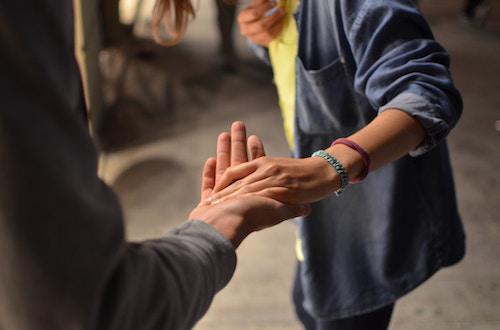Relationships can be the source of our greatest pain or our greatest joy. When we are in conflict with our partner, family members, colleagues, friends or even people we don’t know, it can be something that we would prefer not to experience. However, within every cloud, there is often a silver lining. If we can learn how to move through conflict in a life-enhancing way, we can enrich our relationships, often with the ones we love the most.
Step-by-step guide:
- Recognise and address conflict, in the early phases, if at all possible, otherwise, it can escalate unnecessarily. Initially, there may be some discomfort between two people, which they will recognise if tapped into their intuition (always be guided by your intuition see: How to Access Your Intuition). If unaddressed this can lead to a misunderstanding, possibly prompting an incident such as an argument. If not worked through and resolved successfully, this can create further tension. IT’S EASIER TO RESOLVE A CONFLICT IN THE EARLIER STAGES BEFORE IT GETS A LOT OF ENERGY AROUND IT.
- Manage your emotions, as they can overwhelm us and sweep us away. Learning to observe them and channel their energy in a positive direction can build richer relationships. Communication of our feelings can use our emotional energy to create positive change.

- Manage others emotions if necessary. Trying to maintain a good connection when there is conflict in your relationship can be extremely difficult. The three ways of dealing with conflict are; fight (aggression), flight (withdrawal) or flow (working out a solution together). The other person can be unwilling to listen to your point of view. You want them to open up to you, but they won’t hear you until they know you care about them. Once they understand you care about them, it starts to create some flow.
- Empathy is the flow between two people, whereby each can understand the other’s feelings and motives. Empathy warms communication.
- Respond with statements that communicate clearly and cleanly your feelings, about the problem without attacking, blaming or hurting the other person. Gentle communication opens a discussion without eliciting defensiveness from the other person.
- Design options in conjunction with the other person to resolve your conflict. If you stay positive about the process and look for options where everyone can win, you are more likely to find them. The best solution is the one that satisfies everyone’s needs and solves the problem.
- Follow through with the agreements made to ensure that both parties are developing the trust in the other, solidifying their relationship once more.
To learn more about resolving conflict see: Love Now eCourse







